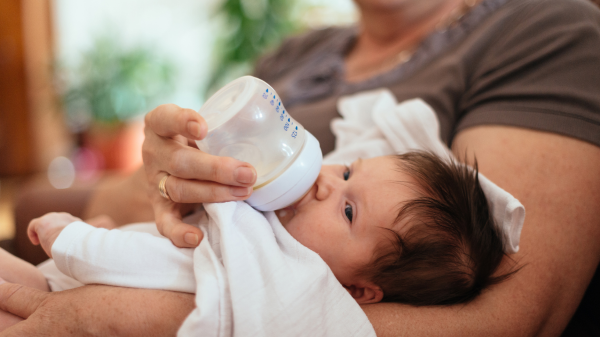It is difficult to overestimate the uniqueness of the processes surrounding pregnancy and childbirth. Some emphasize the positive side of the experience, and others focus on the negative, painful feelings, but there is no doubt about the richness and diversity of the psychological aspects that accompany the sacrament of the birth of a new life. 
The desire to feel motherhood sooner or later has a powerful instinctive nature and cannot be offset by any social attitudes. Having gone through this experience, women always mark it as an amazing event in terms of the power of experience and the uniqueness of sensations.
But in every particular case, the realization of maternal function is very individual, so the practical embodiment of the inherent ability of nature depends on many factors, ranging from purely physiological to social and psychological stereotypes and prejudices. In some places, fulfilling this function becomes a difficult social and psychological task.
Whether to feed your baby naturally or with a bottle is up to you
Young mothers are constantly faced with societal pressures: to feed or not to feed, diapers or nappies, and more. The decision to breastfeed (or bottle-feed) is not only a mother’s individual choice, but also the result of prevailing socio-cultural values and economic conditions.
Numerous studies attest to this. Researchers have concluded that the personal and social context in which breastfeeding occurs is more important than knowledge and attitudes about breastfeeding in whether a woman chooses to breastfeed. The prospect of returning to gainful employment has also been found to influence the decision to continue breastfeeding.
Breastfeeding tips:
- Feeding formula and the best formula for sensitive breastfed babies
- Keep Your Baby Safe And Healthy With The Best Baby And Breastfeeding Products
- Most Popular Breastfeeding A Baby Movies And TV Shows
- 15 gifts for breastfeeding moms
- How to Juggle Breastfeeding Your Baby While Working
Cons of Artificial Breastfeeding
Breastfeeding gives birth to a sense of security, closeness, and trust that lasts for years, but with artificial feeding, you need to pay much more attention to holding your baby in your arms and frequent displays of tenderness. After all, even in medicine, there is such a concept as “tactile hunger.”
In the absence of tactile touches, and vocal appeals from the mother, babies begin to get sick often, they feel unnecessary.
 Artificially-fed babies can get sick more often with colds and allergic reactions. This fact is explained by the lack of special enzymes in their body, which the baby can extract only from the milk of the mother.
Artificially-fed babies can get sick more often with colds and allergic reactions. This fact is explained by the lack of special enzymes in their body, which the baby can extract only from the milk of the mother.
There are times when you have to change several types of formula to find exactly the right one for your baby. After all, everybody is different, and what is perfect for one baby may be detrimental to another.
Breast milk does not need to be prepared, it is sterile and has the right temperature, but it is more complicated than formula. The use of bottles requires constant sterility because if cleanliness is not respected, it is possible to develop intestinal disorders.
You should also constantly monitor the temperature of the water for the formula and its consistency. A poor quality pacifier can lead to regurgitation and the occurrence of colic if the air is swallowed.
Artificial feeding implies certain financial costs. The quality formula cannot be cheap, and as the child grows older, more and more of it is needed time after time.
Psychologically, some moms feel guilty: If I don’t feed my baby naturally, I’m inferior. But this problem just needs to be overcome. Noticing each day when the baby grows and develops normally, the guilt recedes.
Pros of artificial feeding
Artificial milk takes longer to digest than breast milk, so the number of meals the baby eats is reduced. This fact is very important at night when everyone wants to sleep.
Feeding a baby from a bottle, the mother always knows how much she eats at one time, and if there is a problem with her health, immediately notices it by the amount of food remaining.
A woman who is breastfeeding her baby should control her diet. But with artificial feeding, the mom consumes what she wants and can immediately sit on a diet to return to a slim figure.
After all, weight gained during pregnancy is very disturbing for young mothers, and they have a certain psychological discomfort.
Choosing a baby formula gives preference to organic variations that contain probiotics and prebiotics. After all, prebiotic fibers get into the intestines unchanged and stimulate the growth of useful bifidobacteria, increasing the barrier properties of the intestinal mucosa.
This provides natural protection for children’s health, helps build immunity, and increases resistance to infectious diseases, dysbiosis, and food allergies. Prebiotics also promote the formation of uniform soft stools similar to those of breastfed children.
Artificial nutrition is a lifesaver for busy moms who want to combine work and family with a small child. There is the possibility of feeding the baby to other relatives.
That is, the mother can easily leave for their affairs and not worry that the baby will be crying from hunger.
If you feed your baby formula, then this in no case means that it should be left alone. The baby can get choked on milk or lose the bottle.
Emotional and tactile contact between the mother and the baby is very important, so holding him in your arms, you can quietly watch the concentrated face of the baby, stroke his head, say gentle words, sing lullabies, and at the same time relax from household chores.
Children grow up quickly, and you need to enjoy the moments of motherhood to the fullest.
More tips on formula-feeding